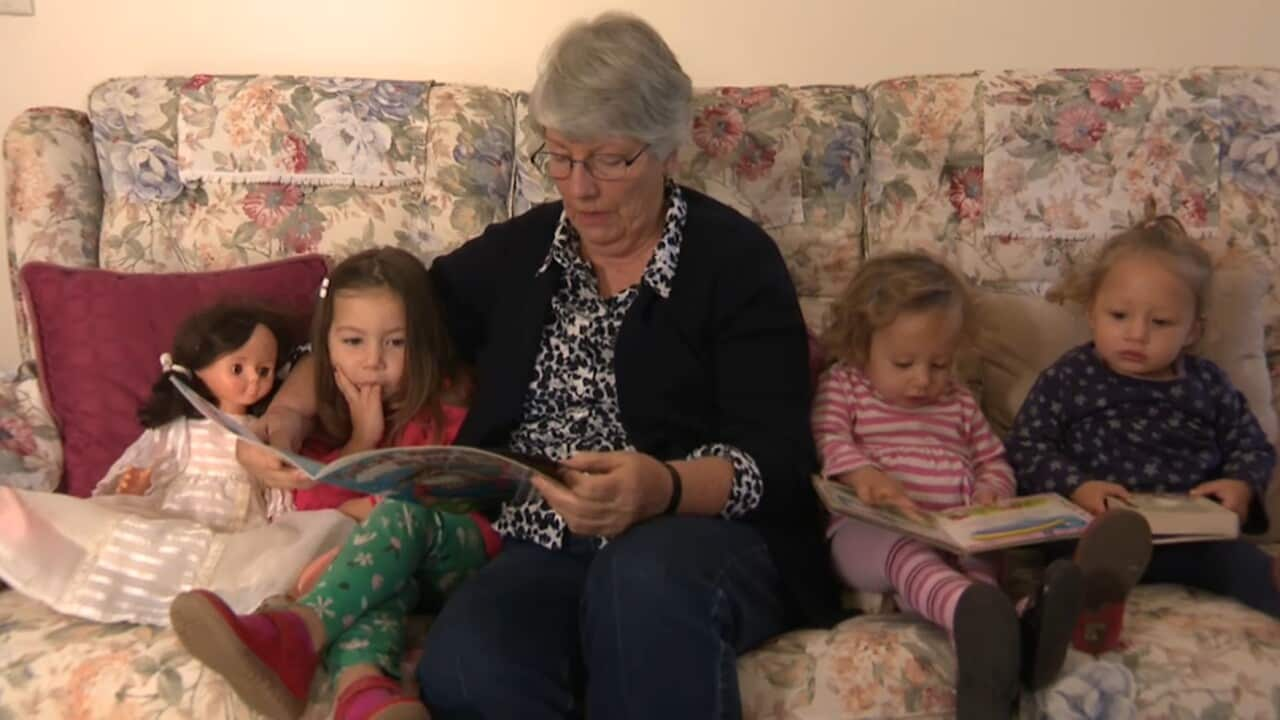Once a week the preschool class at Melbourne's Davis Street Kindergarten relocates to an aged care home.
A large residents' lounge at Uniting AgeWell Carnsworth is transformed into a classroom.
Activity stations are set up around the room, where the four and five-year-olds, and about a dozen elderly residents, get busy playing and socialising.
Young and old sit side-by-side, huddled over puzzles. They help each other with crafts, or have pretend tea parties.

Care home residents enjoy a pretend tea party with visiting children. Source: Phillippa Carisbrooke / SBS News
Residents, some in wheelchairs, others supported by walking frames, drop in to catch-up with the little friends they have made.
"I think it very satisfying. Very relaxing," said resident John Haysey, who attends with his wife of 70 years Mary.
"You feel as if you have done something with the little ones. That is always important I think."
New connections
"We are certainly seeing huge [benefits] in terms of [the children] being able to accept difference much more easily," said teacher Ruth Wallbridge.
"Also recognising that they can be teachers as well as learners."
"They often support the resident in doing things they find tricky now. That, of course, reverses when the residents help them do something they cannot do."

An aged care resident and pre-schooler interact. Source: Phillippa Carisbrooke / SBS News
During the visits, residents born overseas share stories about their migration and countries of origin. Children who speak a second language at home sometimes find a resident to chat with in language.
These simple inter-generational interactions may not seem a lot. But in a country where many grandparents and grandchildren are separated by long distances, it is a way to build links across the years.
Health benefits
For elderly residents, the program can combat loneliness and depression.
"Their self-esteem goes up with the children. And they get empowered," said Vindhya Mendis, lifestyle coordinator at the care home.
"Also they feel valued as the children are very keen to listen to their stories."
It can also help residents with dementia.
"Most of our residents have some level of dementia," Ms Mendis said.
"They relate very well to their childhood memories ... So seeing the children here doing things that is reminding them of things."
"It is reminiscence therapy that helps them retain a certain level of memory."


